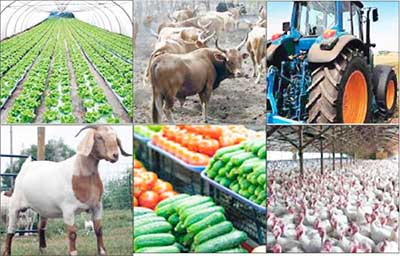Relevance: GS-3: Transport and Marketing of Agricultural Produce and Issues and Related Constraints; E-technology in the aid of farmers
Key Phrases: Farmer produce organization, Doubling famer’s income
Why in news?
- Union government announces formation of 10k FPOs
Analysis:
What are FPOs?
- FPOs are voluntary organizations controlled by their farmer-members who actively participate in setting their policies and making decisions.
- They are open to all persons able to use their services and willing to accept the responsibilities of membership, without gender, social, racial, political or religious discrimination.
- FPOs operatives provide education and training for their farmer-members, elected representatives, managers, and employees so that they can contribute effectively to the development of their FPOs.
Why this emphasis on FPOs?
- Declining Average Land Holding Size: The average farm size declined from 2.3 hectares (ha) in 1970-71 to 1.08 ha in 2015-16. FPOs can engage farmers in collective farming and address productivity issues emanating from small farm sizes.
- Negotiating with Corporates: FPO can help farmers compete with large corporate enterprises in bargaining, as it allows members to negotiate as a group and can help small farmers in both input and output markets.
- Easy access to funds and other support services by the government/donors/ service providers.
- It can work as a platform to facilitate better access to government services, like PDS, MNREGA, Scholarships and Pensions, etc.
- Post-harvest losses can be minimized through value addition and efficient management of the value chain.
- Economics of Aggregation: The FPO can provide low-cost and quality inputs to member farmers. For example, loans for crops, purchase of machinery, input agri-inputs
- Social Impact: Social capital will develop in the form of FPOs, as it may lead to improved gender relations and decision-making of women farmers in FPOs.
- They can help in Doubling of export by 2022
Challenges faced by them
- Lack of clarity on the market category - FPOs may fail to meet the demand of buyers in terms of quantity requirement leading to a weak inter-organisational relationship
- Lack of or inadequate professional management of the business.
- Audience diversity - FPOs need to derive support from different group of stakeholders (farmer, government, buyers, NGOs etc.) which is crucial to understand their expectations.
- Multiple thresholds for success – Measuring the success of FPOs varies according to the stakeholder
- Just 1-5 per cent of FPOs have received funding under central government schemes introduced to promote them in the last seven years, the State of India’s Livelihood (SOIL) Report 2021 stated.
- In the Credit Guarantee Scheme, which provides risk cover to banks that advance collateral-free loans to FPCs up to Rs. 1 crore, only about 1 per cent of registered producer companies have been able to avail the
benefits.
Current status in India
- Presently, around 5000 FPOs (including FPCs) are in existence in the country, which were formed under various initiatives of the Government
- Majority of these FPOs are in the nascent stage of their operations with shareholder membership ranging from 100 to over 1000 farmers and require not only technical handholding support but also adequate capital
- Ministry of Agriculture and Farmers Welfare has a Central Sector Scheme titled 'Formation & Promotion of 10,000 Farmer Produce Organizations (FPOs)
Government efforts
- In 2020, the scheme-” Formation and Promotion of Farmer Producer Organisations” was launched to promote 10,000 FPOs in the next five years
- The Government of India provides budgetary support to SFAC for its Equity Grant and Credit Guarantee Fund Scheme for the Farmer Producer Company.
Way ahead
- An appropriate provision in the Food Grain Procurement policy of the Government of India requiring the procurement of agricultural commodities directly through FPOs under the MSP scheme
- The system of issuing various licenses required for undertaking business activities by FPOs may be simplified to make it a single-window state-wide license.
- Stakeholders may promote FPOs through building mass awareness, developing the institution, forging linkages with the ecosystem and digital monitoring.
- Collectives must do the requisite homework on issues such as modalities of the conduct of boards meetings, technical expertise for better procurement, identifying potential buyers, etc.
- Focus on multiple stakeholders including farmers, buyers and regulators can accommodate audience diversity.
Source: Down To Earth









